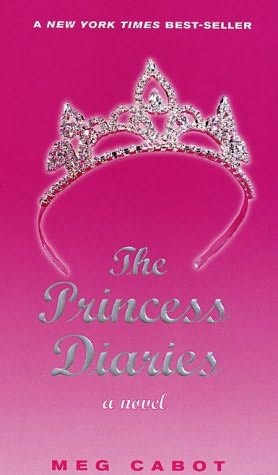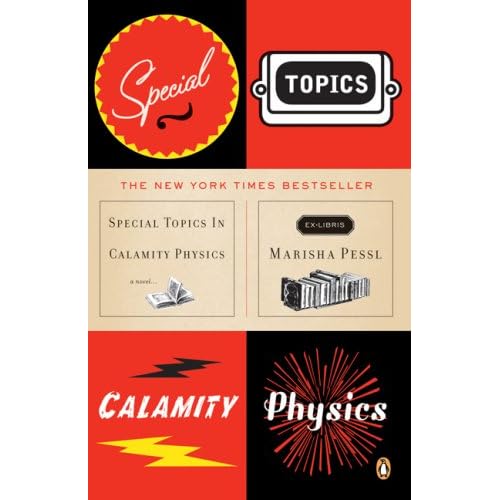The Pulitzer, by my own count, is one of the more gender-balanced literary prized out there. By my count, 29 out of 86 Pulitzer awarded for fiction or novel (as the award category was once called) were awarded to women. That's 33 percent.Its not great, but its better than the other book awards.
The National Book Award has been awarded 68 times, 15 times to women (22 percent) Twelve out of the 43 books awarded the Man Booker Prize were women (27 percent). Twelve out of 107 Nobel Laureates in literature are women. That's 11 percent.
So, of all the prizes to win as a female fiction writer, the Pulitzer is the one where gender should be the smallest, issue. But, news questions are, to some extent, predictable, so a short Wall Street Journal interview with Jennifer Egan, who won the prize for her book Visit From the Goon Squad ended with this:
Over the past year, there’s been a debate about female and male writers and how they come off in the press. Franzen made clear that “Freedom” was going to be important, while others say that Allegra Goodman was too quiet about “The Cookbook Collector.” Do you think female writers have to start proclaiming, “OK, my book is going to be the book of the century”?
Anyone can say anything, that’s easy. My focus is less on the need for women to trumpet their own achievements than to shoot high and achieve a lot. What I want to see is young, ambitious writers. And there are tons of them. Look at “The Tiger’s Wife.” There was that scandal with the Harvard student who was found to have plagiarized. But she had plagiarized very derivative, banal stuff. This is your big first move? These are your models? I’m not saying you should say you’ve never done anything good, but I don’t go around saying I’ve written the book of the century. My advice for young female writers would be to shoot high and not cower.
The authors Kaavya Viswanathan plagiarized were Megan F. McCafferty, Meg Cabot, Sophie Kinsella, and maybe Salman Rushdie. With the exception of Rushdie, where the plagiarism was also the least clear, Viswanathan plagiarized well known, successful chick-lit / YA authors.
Chick-lit authors and fans took offense at Egan's description of the genre (or, really, the parts plagiarized) as "very derivative, banal stuff" and bloggers suggested that Egan was guilty of "girl-on-girl crime" and called for an apology. ( As for the three women themselves, Cabot, posted on her Facebook wall "I'm certain Jennifer Egan didn't mean to be rude." McCafferty was a lot more angry and also received an apology. I don't see anything from Kinsella, did I miss it? ).
Here's the thing: the genre is derivative and banal. Sometimes an author's work is even derived of her own previous books. I spent sometime in a bookstore looking at the backs of Kinsella's Shopaholic books (which is a different series than the book that was plagiarized from), and each one of them had the same book summary: Becky shops a lot, Becky is in trouble because of shopping (financially and romantically) Becky's troubles are resolved and deferred. Becky lives a glamorous life full of hot men (or man, she's loyal to her husband once they marry), cute shoes, gossip, and occasional career.
I've read books by each of these three authors. When I was in 12th grade, my English teacher asked me if there were any books that I was secretive about reading, ones that I didn't want to tell anyone else I was reading. I don't think she was asking me about books I was embarrassed about, but right now that's what I think of. I am embarrassed to admit that I have read these books because I believe in the power and importance of Literature, and I don't think those books are Literature (the pretentious capitalized L is intentional).
My English teacher's question came in the form of a question written in the margins of my final high school English paper. The paper prompt was "what is literature." My answer was "a work of writing that makes the reader feel something." Now, years later, I would change that to "makes the reader feel something that lasts beyond the time it takes to read the work itself or makes the reader re-appreciate the power of language." The second part allows for some of the post-modernist writers to be included as part of Literature and the addendum to the first part is reflective of my belief that not everything that is written is Literature. I write every day. Nothing I write for work is literature. It's written to inform and nothing else. Writing that entertains--even if it makes the reader laugh or cry--but leaves little emotion once the act of reading is completed falls into the same category.
I recognize that my answer is somewhat subjective; maybe there are people who read the works of McCafferty, Cabot, and Kinsella and find themselves marveling at the books weeks after the reading is complete. But for me--and clearly for Egan as well--these books fall short of being Literature.
They certainly fill a niche; the authors are wildly successful, and deserve to be. But the books are not memorable. They don't linger. There were no sentences that made me marvel at the possibilities embedded in the English language. At best, they are brain candy, light, entertaining fluff that fills the time well enough while being read but leaves nothing lasting.
Click the arrows or here to read the rest of this post.









